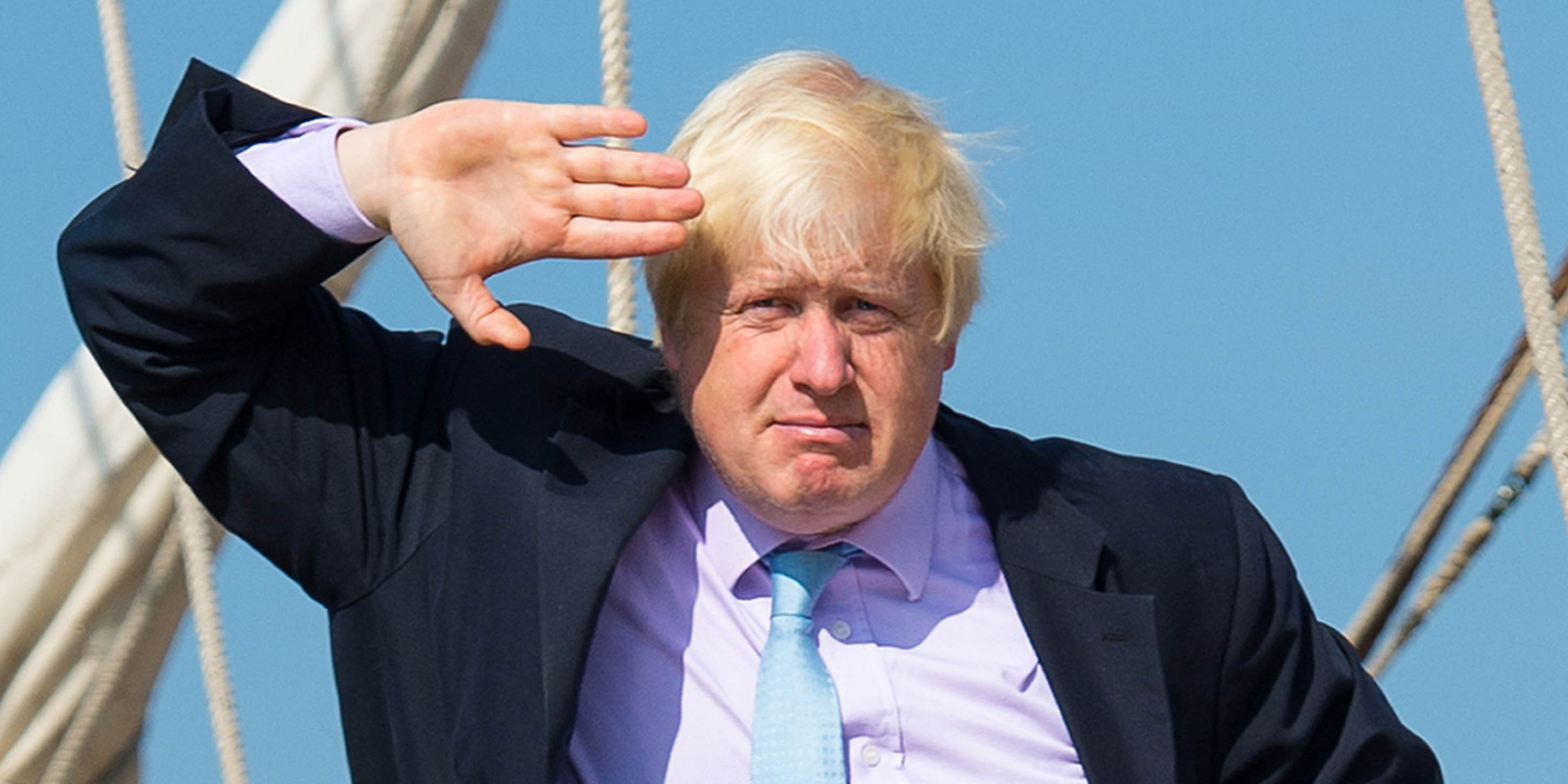
Boris Johnson
Originally appeared at A-specto, translated by Borislav exclusively for SouthFront
Boris Johnson – one of the fiercest supporters of Brexit, vanished into a mouse hole after the announcement of the results of the referendum in Britain, which led to the withdrawal of David Cameron from the post of prime minister. It seems the former mayor of London was scared of the acute reaction of the islanders, who blocked his home on Friday, which required a cordon of police to take him out and save him from the angry demonstrators.
There were hypotheses that Johnson had already realized that he had lost and that is the reason for him to say that leaving the European Union should not be rushed. There were comments that with his retirement, Cameron ruined the political careers of both Johnson and Michael Gove, the main advocates for the UK to leave the EU, “who will carry historical weight of this decision.” Brexit began to deflate after the leader of the UK Independence Party Nigel Farage, denied one of the main messages to the supporters of the Brexit campaign. He reversed and said he never said that the membership of the UK in the EU cost 350 million pounds a week, which could go toward the British health system.
Johnson, who some already inflected for future Prime Minister of Britain, became the object of ridicule after the outcome of the vote. Some jokers hinted that he and Gove retreated to read Article 50 of the Lisbon Treaty and to figure out how to re-join the EU. Others accused him of being the grandson of a poor Turk, though precisely Johnson led a vigorous campaign against Turkey’s accession to the EU.
A week ago sardonic joke coined by a former colleague of Johnson ruffled some feathers in Britain. According to journalist Martin Fletcher “for 25 years the press has fed Britons with manipulated, false and relentlessly hostile stories about the European Union and the journalist who started that tone was Boris Johnson. Now he leads a campaign against the caricature of the EU, which he himself has created.”
The former Mayor of London has covered the topic of the EU in the 90s – something, that in the eyes of many people involved in the campaign for the Brexit, makes him an authority that can state forward clear arguments on this topic. Johnson however, was sacked from The Times in 1988 because of a fictional quote, and after that he created a bad reputation for himself in Brussels because of the constant attacks to the EU.
Now in his regular column in The Telegraph, which he obviously writes from his current hideout, he said that Britain will continue to have access to the EU single market, despite voting to leave the Union. “For the British in Europe, and the Europeans in Britain things will not change much. Brits will again be able to work in Europe, to live, to travel, to buy houses and settle there,” he wrote.
In his words, Britain can build relations with the EU based on free trade and partnership, and will be able to conclude agreements with developing economies, which are not necessarily part of the EU. Johnson also said that he doesn’t feel a real desire for another referendum on Scottish independence from the United Kingdom.
Meanwhile it became clear that the Scottish Parliament will discuss the possibility to block Britain’s exit from the European Union if necessary. Scotland voted to remain in the referendum, and will protect its interests if it comes to the procedure for exiting the EU. For it to be triggered, the UK will need to obtain the consent of the regional parliaments in Scotland, Wales and Northern Ireland.
According to the first Prime Minister of Scotland, Nicola Sturgeon, the Britain that Scotland voted to stay in 2014, no longer exists. She insisted to participate in the negotiations for Brexit in Brussels. Her thesis is reinforced by two opinion polls which show that the Scots will vote to declare independence from Great Britain in the event that a new referendum.
Meanwhile, the British finance minister George Osborne stated that Brexit will shake the economy and the country will activate Article 50 of the Lisbon Treaty only when it is ready. “I think we should do this only once we have a clear vision for the new agreements which we will try to achieve with our European neighbors,” he explained. Leading lawyers stated that the parliament must vote on the exit of Britain from the EU no later than November, when the economic consequences of Brexit will already be clear.
Curiously, the referendum was accompanied by a series of resignations in the ranks of Labour. The Education Minister shadow Lewis Powell, Health Minister shadow Heidi Alexander, Gloria December Piero, who is shadow minister in charge of policies for young people, Minister of Environment shadow Kerry McCarthy, Transport Minister shadow Lillian Greenwood and Scottish shadow minister Ian Murray, all resigned. Previously, the leader of the Labour Party Jeremy Corbyn removed the shadow foreign secretarys Hilary Benn, as he had no confidence in him. However, the shadow Chancellor (finance minister) John McDonald said that the leader of the Labour Party has no intention of retiring.





